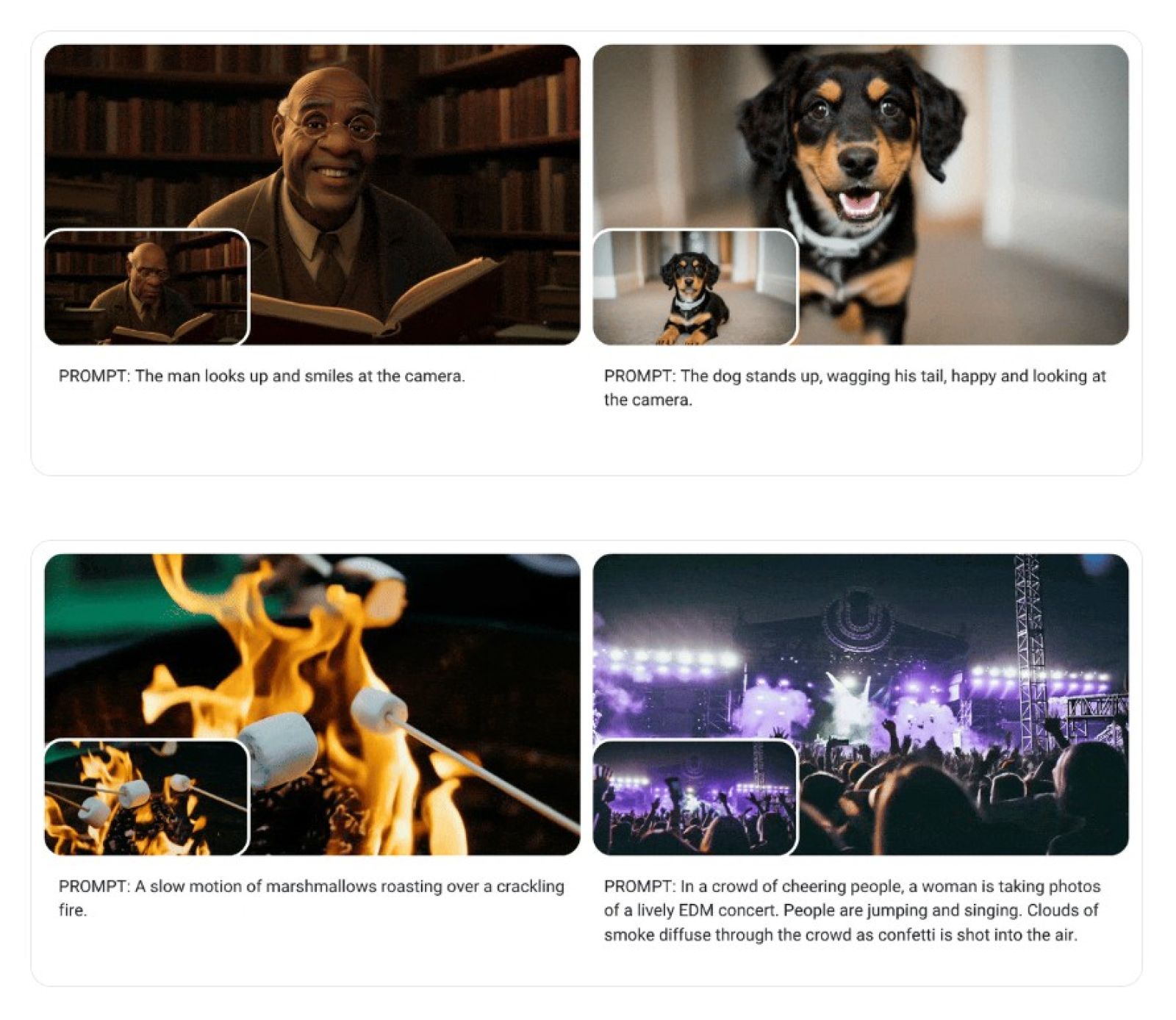In the race for generative AI, Google launches its video generator 🎥
Published by Cédric,
Author of the article: Cédric DEPOND
Source: Google Cloud
Other Languages: FR, DE, ES, PT
Author of the article: Cédric DEPOND
Source: Google Cloud
Other Languages: FR, DE, ES, PT
Follow us on Google News (click on ☆)
Developed by DeepMind teams, Veo (link) is not just a mere tech gadget. It is an AI capable of creating six-second high-definition video clips from a textual description or an image. This tool was unveiled at the Google I/O conference in May 2024. Google has just announced that it is now available in private preview on the Vertex AI platform.
One of Veo's strengths lies in its refined understanding of complex visual demands. By incorporating cinematic concepts or physical laws like fluid dynamics, it delivers realistic visual renderings. Besides creating from scratch, the tool also enables editing existing videos or modifying specific areas.
But Google didn't stop at the visual aspect. Veo integrates SynthID technology, an invisible watermark that identifies each creation as AI-generated. This system aims to prevent misuse while ensuring the traceability of videos as generative content proliferates.
Although primarily intended for companies, Veo is already finding diverse applications. The travel platform Agoda uses it to animate promotional visuals, while brands like Milka and LU are exploring its capabilities for personalized local advertisements. Similarly, Quora plans to integrate it into its Poe app.
Simultaneously, Google is expanding its lineup of tools with Imagen 3, an image generator that is also joining Vertex AI. Its features, such as adding or extending elements within an image, further enhance the possibilities available to marketing professionals.
However, these innovations are not without imperfections. Critics highlight a certain uniformity in the creations, and a significant portion of consumers remain skeptical toward AI-generated content. Google, aware of these limitations, is betting on the continuous improvement of its models to boost adoption rates.
As competitors like OpenAI and Amazon also accelerate in this field, the race to dominate the generative AI sector is just beginning.
